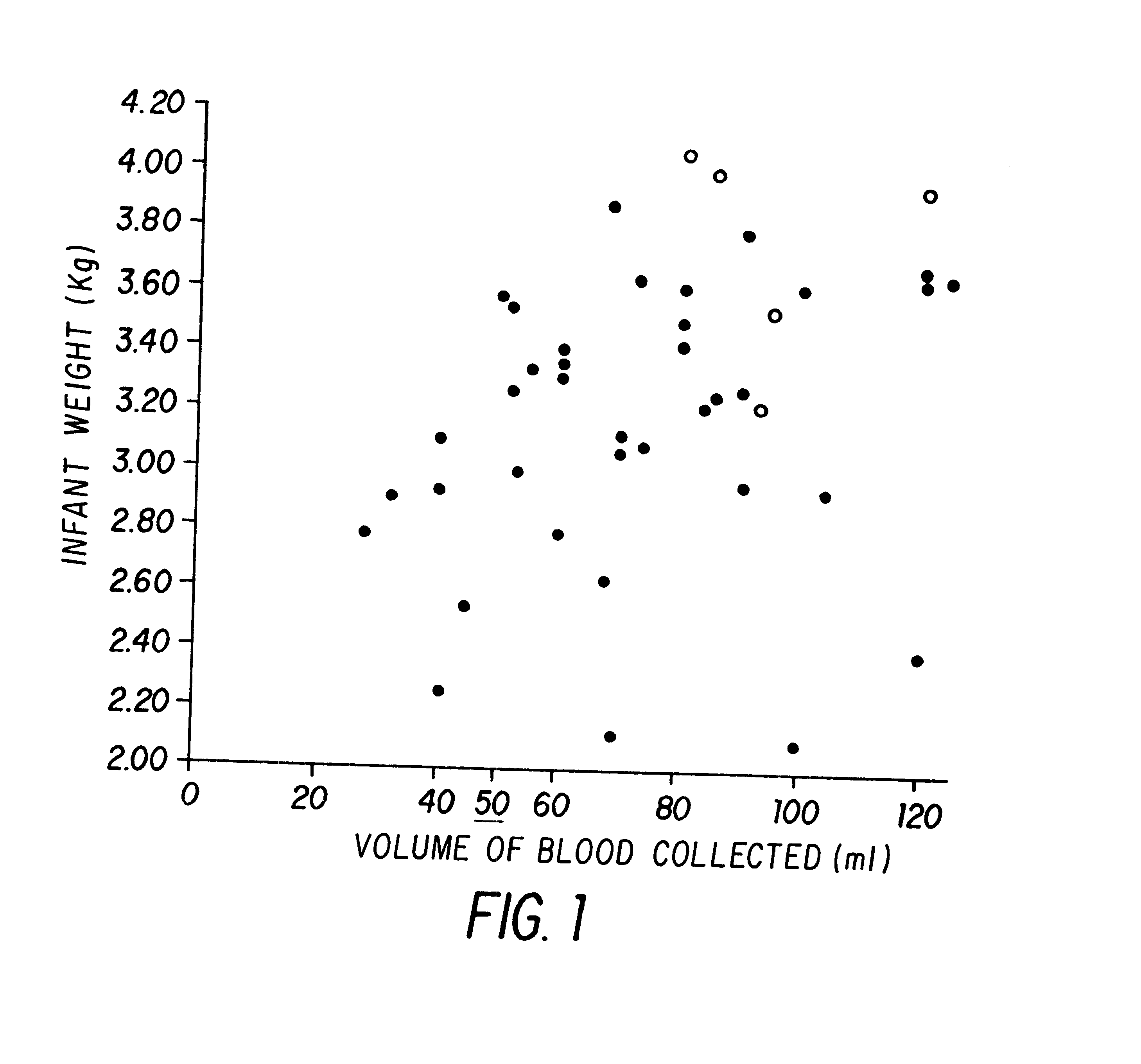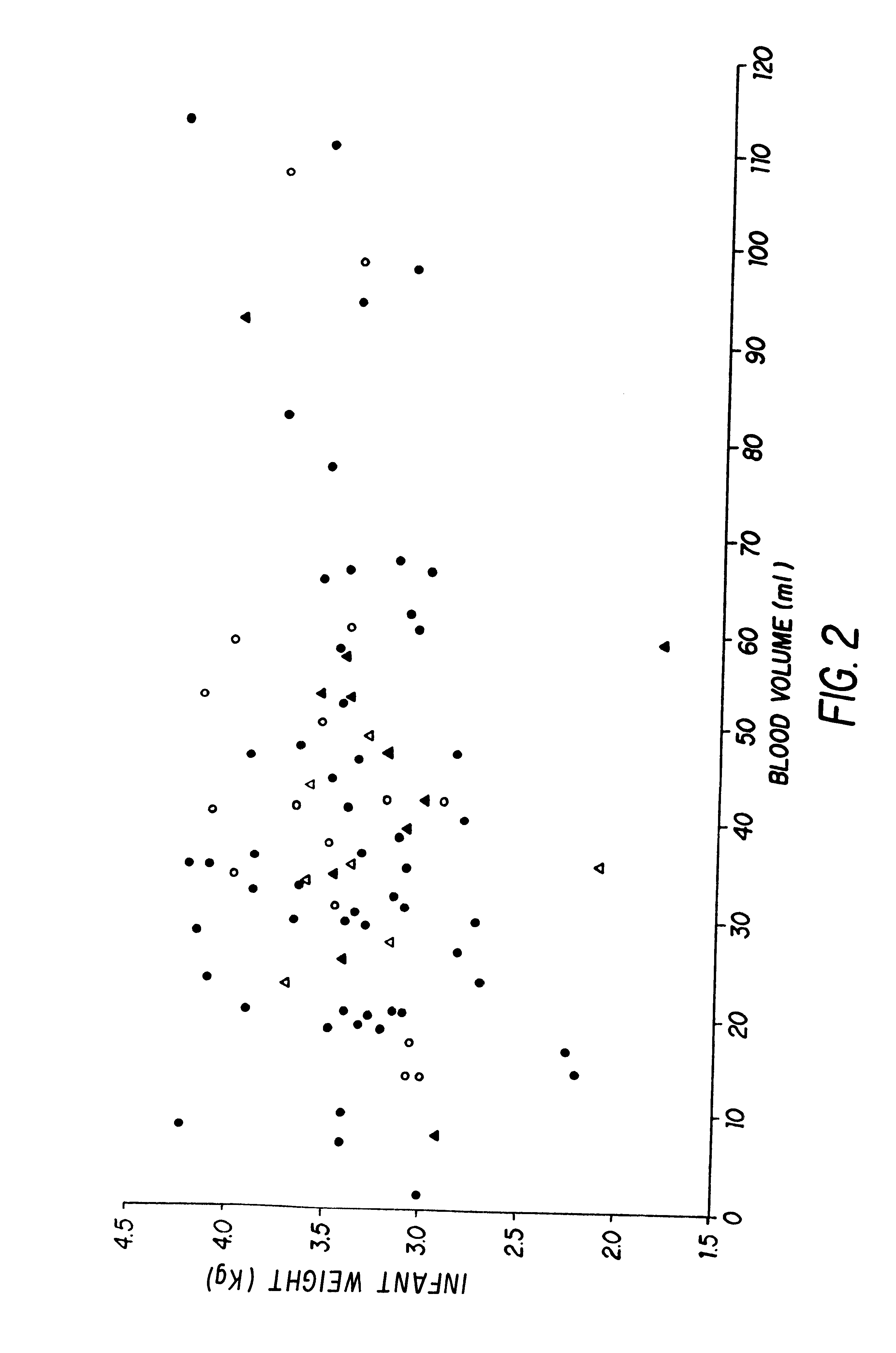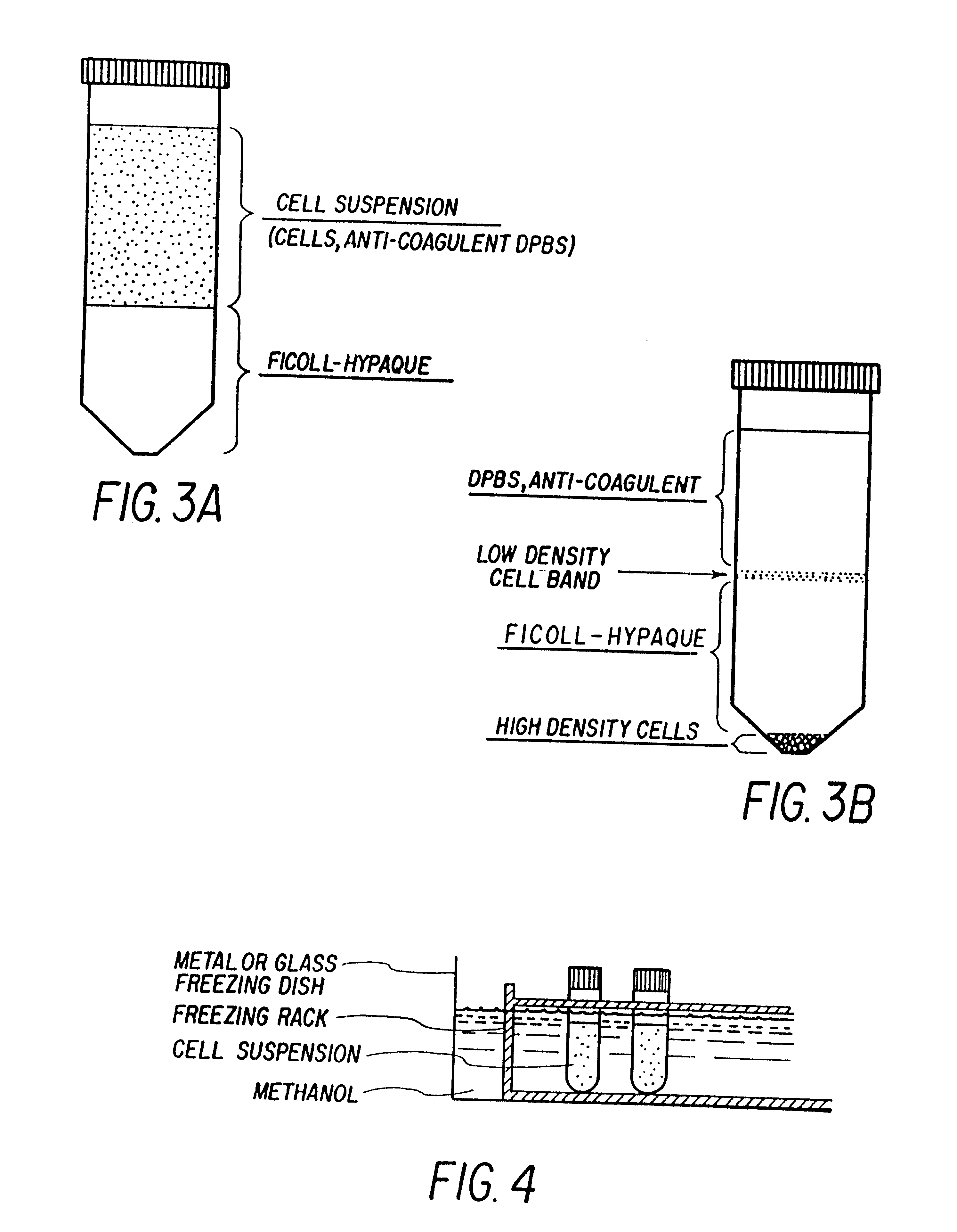Isolation and preservation of fetal and neonatal hematopoietic stem and progenitor cells of the blood
a technology of fetal and neonatal hematopoietic stem and progenitor cells, which is applied in the direction of biocide, tumor/cancer cells, biochemistry apparatus and processes, etc., can solve the problems of severe limitations, and inability to carry out transplantation
- Summary
- Abstract
- Description
- Claims
- Application Information
AI Technical Summary
Problems solved by technology
Method used
Image
Examples
Embodiment Construction
The present invention is directed to hematopoietic stem and progenitor cells of neonatal or fetal blood, that are cryopreserved, and the therapeutic uses of such stem and progenitor cells upon thawing.
In particular, the present invention relates to the use of fetal or neonatal stem cells for hematopoietic reconstitution. In a preferred embodiment of the invention, the fetal or neonatal stem cells can be used in autologous hematopoietic reconstitution, i.e., in the reconstitution of the hematopoietic system of the same individual from which they were originally derived. In such an embodiment, the invention provides substantial advantages over the present use of bone marrow for hematopoietic reconstitution. Present use of bone marrow transplantation is severely restricted by the fact that there is virtually never a perfectly matched (genetically identical) donor, except in cases where an identical twin is available or where bone marrow cells of, for example, a cancer patient in remiss...
PUM
 Login to View More
Login to View More Abstract
Description
Claims
Application Information
 Login to View More
Login to View More - R&D
- Intellectual Property
- Life Sciences
- Materials
- Tech Scout
- Unparalleled Data Quality
- Higher Quality Content
- 60% Fewer Hallucinations
Browse by: Latest US Patents, China's latest patents, Technical Efficacy Thesaurus, Application Domain, Technology Topic, Popular Technical Reports.
© 2025 PatSnap. All rights reserved.Legal|Privacy policy|Modern Slavery Act Transparency Statement|Sitemap|About US| Contact US: help@patsnap.com



